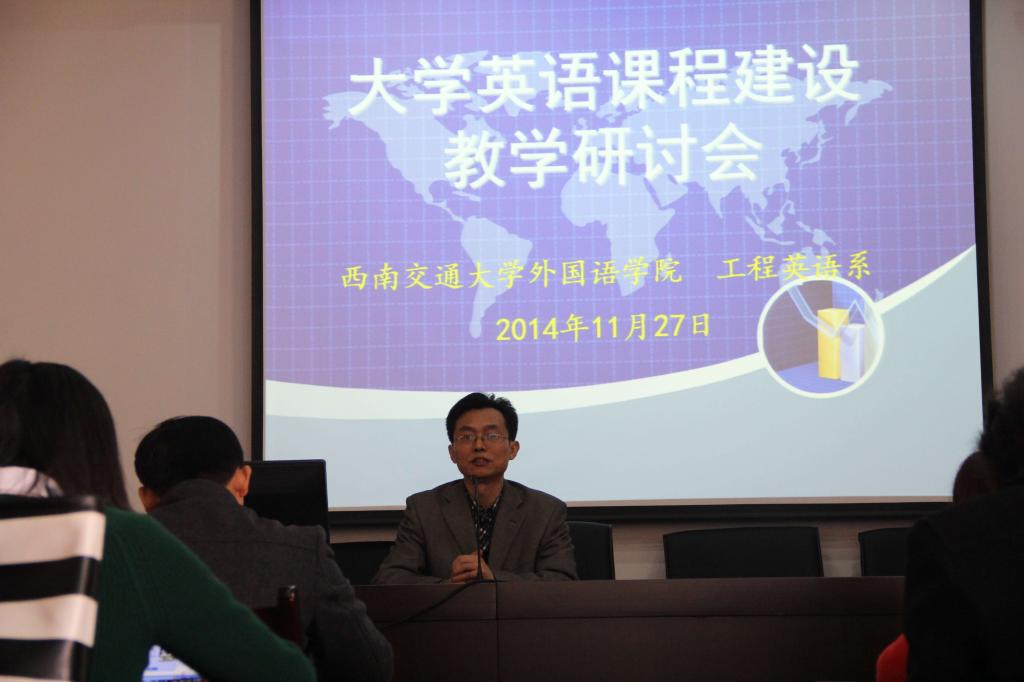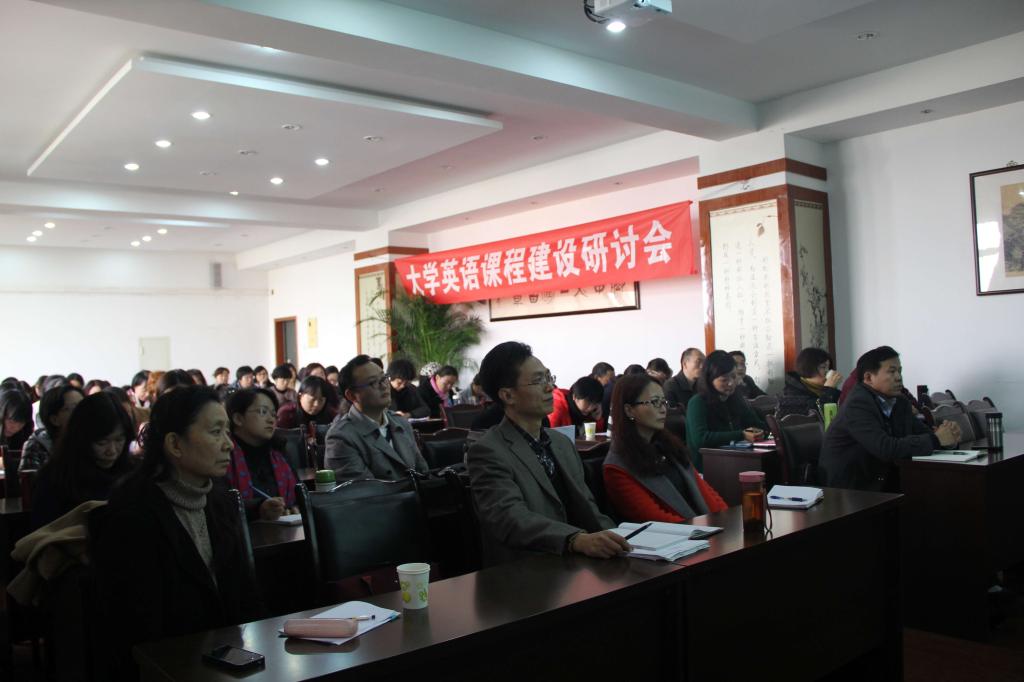On November 27, the staff of the Department of English for engineering (DEE, taking charge of teaching English to the non-English major students at either undergraduate or postgraduate level) attended a seminar on setting up new college English courses in the lecture hall of the School of Foreign Languages (SFL). Six course groups shared with the other teachers their exploration and reflection during the undertaking.
Mr. Yi Hong, Dean of DEE, presided over the seminar. He frankly talked about the serious situation College English (currently a 16-credit course lasting for four semesters for the undergraduate students) is currently faced with. At the same time, he also emphasized his confidence in the national reform of College English, whose success highly depends on the teachers’ efforts and persistence.

Prof. Tang Yueqin, Vice Dean of SFL as well as member of Foreign Language Teaching Advisory Board of Higher Education under the Ministry of Education, made a keynote speech—“How will College English teachers make their career development under the challenging circumstances”. After a brief introduction to the national Guides for College English Teaching, she highlighted President Xu Fei’s comments on the development of SFL as well as his suggestions to teachers of SFL. By summarizing her researches in some famous universities in China, Prof. Tang encouraged the College English teachers to nurture the sensitivity to the changing tides of College English development in China, and take career development seriously.

Prof. Xia Weirong, Ex-Dean of SFL and member of the Teaching Supervision Board of SWJTU, made another keynote speech—“Feedback on my class observations of College English I, a demonstration course”. With a joke of herself as an “unwelcome guest” to the 30 plus teachers of College English during last month, Prof. Xia reassured these teachers with a very positive feedback on them and their classes. From the perspective of Prof. Xia, high professionalism, variety in teaching style, proper classroom language and rich content are generally characteristic of College English class. She also mentioned some impressive teaching cases. As Prof. Xia always believes, College English teachers will certainly survive the serious situation only if the students are attracted by and actively involved in the class. “Take care of your class, and you will be taken care of.”
Six teachers, on behalf of six course groups respectively, reported to their colleagues.
1. The “Academic English for Graduate Students” group: In the report of “Three Keywords for Academic English”, Mr. Zeng Xiangmin attracted the audience’s attention by the analysis of the origin and connotation of “academic English”. In his opinion, what really matters is the cultivation of students’ academic skills based on a comprehensive analysis of the students’ needs.
2. The “Academic English for Undergraduate Students” group: From the perspectives of teaching modes, assessment and evaluation system, and use of online resources, Ms. Shen Yixin emphasized how important it is for teachers to guide the students from passive acceptance to critical thinking. The marvelous point in her report came with the introduction of how her pilot teaching went this semester.
3. The “Oral English—Communication and Culture” group: Ms. Wang Yan first shared the pleasant cooperation among her group members during the “small-scaled research project” in her words. She said her group made great efforts to set up an open and sustainable course which is expected to survive this round of reform and the next. Whether it is a successful course, she concluded, depends on whether the tasks are designed logically, progressively and relevantly.
4. The “Oral English—Thinking and Academic Skills” group: In Ms. Li Jie’s report entitled “Learning to Thinking”, the exposure to diverse culture, the cultivation of an international value, critical thinking and creativity are characteristic of the course.
5. The “Advanced English for Graduate Students” group: Mr. Guan Rui shared his own gains in the course teaching this semester, and he showed his confidence in that this course will actually improve the students’ English proficiency especially when they are intended to apply to study abroad on a government-sponsored project.
6. The “Workplace English” group: Ms. Jiang Jing shared the joys and hardships during the setting-up of the course. Without a chosen textbook, this group had to work twice as hard, and in the meanwhile, they are compiling a textbook under the same name.
At the end of the three-and-a-half-hour seminar, Zeng Xiangmin, Vice Dean of DEE extended his thanks to all course groups and the teachers presented. He believed this valuable opportunity would urge the DEE teachers to reflect on their own teaching.